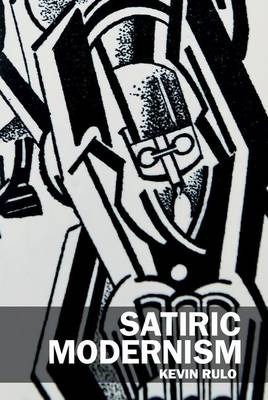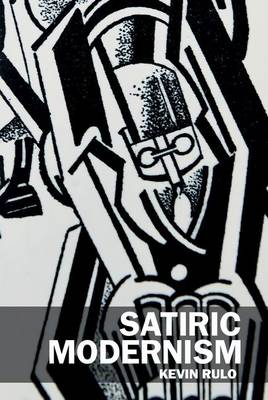
- Retrait gratuit dans votre magasin Club
- 7.000.000 titres dans notre catalogue
- Payer en toute sécurité
- Toujours un magasin près de chez vous
- Retrait gratuit dans votre magasin Club
- 7.000.0000 titres dans notre catalogue
- Payer en toute sécurité
- Toujours un magasin près de chez vous
Description
In this book, Kevin Rulo reveals the crucial linkages between satire and modernism. He shows how satire enables modernist authors to evaluate modernity critically and to explore their
ambivalence about the modern. Through provocative new readings of familiar texts and
the introduction of largely unknown works, Satiric Modernism exposes a larger satiric mentality at work in well-known authors like T.S. Eliot, James Joyce, Wyndham Lewis, Ezra Pound, Virginia Woolf, and Ralph Ellison and in less studied figures like G.S. Street, the Sitwells, J.J.
Adams, and Herbert Read, as well as in the literature of migration of Sam Selvon and John Agard, in the films of Paolo Sorrentino, and in the drama of Sarah Kane. In so doing, Rulo remaps the last hundred years as an era marked distinctively by a new kind of satiric critique of and aesthetic engagement with the temporal fissures, logics, and regimes of modernity. This ambitious,
expansive study reshapes our understanding of modernist literary history and will be of interest to scholars of twentieth century and contemporary literature as well as of satire.
Spécifications
Parties prenantes
- Auteur(s) :
- Editeur:
Contenu
- Nombre de pages :
- 288
- Langue:
- Anglais
- Collection :
Caractéristiques
- EAN:
- 9781949979893
- Date de parution :
- 19-04-21
- Format:
- Livre relié
- Format numérique:
- Genaaid
- Dimensions :
- 160 mm x 241 mm
- Poids :
- 816 g

Les avis
Nous publions uniquement les avis qui respectent les conditions requises. Consultez nos conditions pour les avis.






